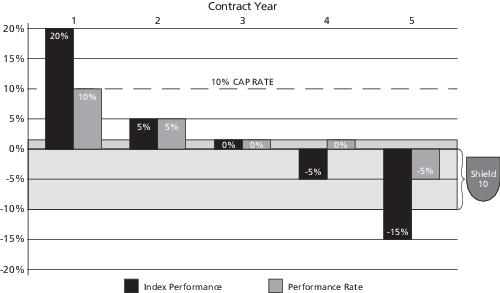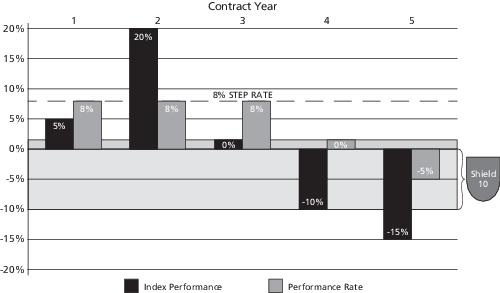Our business is largely conducted through complex
information technology and communications
systems operated by
us and our service providers or other business partners (e.g., the firms involved in the distribution and sale of our products)
,
and their operations rely on the secure processing, storage and transmission of confidential and other information in their
systems and those of their respective third party service providers
. For example, many routine operations, such as processing
your requests and elections and day-to-day record keeping, are all executed through computer networks and systems. We
have established administrative and technical controls and business continuity and resilience plans to protect our operations
against attempts by unauthorized third parties to improperly access, modify, disrupt the operation of, or prevent access to
critical networks or systems or data within them (a “cyber-attack”). Despite these protocols, a cyber-attack could have a
material, negative impact on BLNY, as well as individual Owners and their Contracts.
There are inherent limitations in our
plans and systems, including the possibility that certain risks have not been identified or that unknown threats may emerge in
the future. Unanticipated problems with, or failures of, our disaster recovery systems and business continuity plans could
have a material impact on our ability to conduct business and on our financial condition and operations, and such events
could result in regulatory fines or sanctions, litigation, penalties or financial losses, reputational harm, loss of customers, and/or
additional compliance costs for us.
Our operations also could be negatively affected by a cyber-attack at a third party, such
as a service provider, business partner, another participant in the financial markets or a governmental or regulatory authority.
Cyber-attacks can occur through unauthorized access to computer systems, networks or devices; infection from computer
viruses or other malicious software code; phishing attacks; account takeover attempts; or attacks that shut down, disable,
slow or otherwise disrupt operations, business processes or website access or functionality. There may be an increased risk
of cyber-attacks during periods of geo-political or military conflict. Disruptions or failures may also result from unintentional
causes, such as market events that trigger a surge of activity that overloads current information technology and
communication systems. Other disruptive events, including (but not limited to) natural disasters, military actions, and public
health crises, may adversely affect our ability to conduct business, in particular if our employees or the employees of our
service providers are unable or unwilling to perform their responsibilities as a result of any such event. Cyber-attacks,
disruptions or failures to our business operations can interfere with our processing of Contract transactions, including the
processing of transfer orders from our website; impact our ability to calculate values; cause the release and/or possible loss,
misappropriation or corruption of confidential Owner or business information; or impede order processing or cause other
operational issues. There can be no assurance that we or our service providers will avoid losses affecting your Contract due to
cyber-attacks, disruptions or failures in the future. Although we continually make efforts to identify and reduce our exposure
to cybersecurity risk, there is no guarantee that we will be able to successfully manage and mitigate this risk at all times.
Furthermore, we cannot control the cybersecurity plans and systems implemented by third parties, including service
providers.

